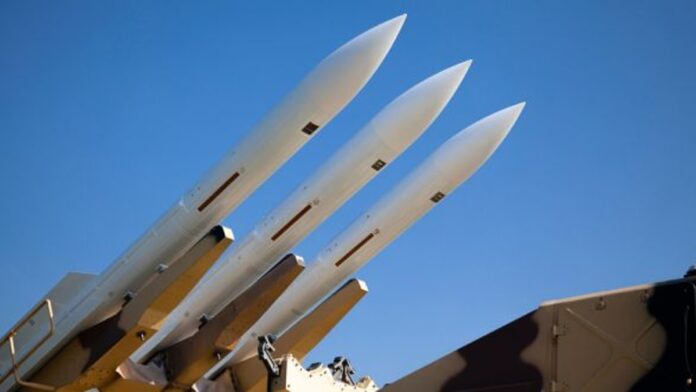As tensions escalate in the Middle East, Israel is on high alert for a possible direct attack from Iran in retaliation for the recent killing of a senior officer in Iran’s embassy in Damascus.
US and other intelligence assessments have warned that the retaliation could occur imminently, potentially triggering a broader regional conflict.
US President Joe Biden has underscored his expectation of an Iranian strike, cautioning against such actions while emphasizing diplomatic channels for resolution. “Don’t,” Biden bluntly stated when asked about his message to Iran regarding a potential strike on Israel.
Reports from reputable sources such as the Wall Street Journal and Bloomberg suggest that an assault from Iranian soil, utilizing drones and precision missiles, could materialize within the next 24 hours.
The Defense Intelligence Agency’s assessment outlines Iran’s capability, highlighting its substantial inventory of ballistic and cruise missiles capable of reaching targets up to 2,000 kilometres away.
In response to the escalating threat, the US has deployed additional military assets to safeguard Israel and American forces in the region. This includes the movement of two Navy destroyers to the Eastern Mediterranean Sea, among other strategic measures.
Furthermore, diplomatic efforts have been intensified to de-escalate tensions. US officials have engaged in dialogue with key stakeholders in the region, including Israel, Saudi Arabia, and Qatar.
General Michael Kurilla, the head of US Central Command, has been dispatched to Israel for urgent discussions on the looming threat posed by Iran.
The recent escalation follows heightened hostilities between Israel and Palestine, culminating in a significant offensive by Israel against the militant organization Hamas.
Amid this volatile backdrop, the shadow war between Israel and Iran has intensified, notably marked by an Israeli airstrike on the Iran consulate in Damascus, resulting in casualties, including two Iranian generals.
Iran swiftly responded, declaring its readiness for war and vowing to retaliate against Israel. In anticipation of potential attacks, Israel has taken defensive measures, including the cancellation of home leaves for combat troops, mobilization of reserves, and reinforcement of air defences.
Notably, Israel has disrupted navigational signals over Tel Aviv to thwart GPS-guided drones or missiles. The situation remains fluid, with the spectre of a full-scale regional conflict looming large.
As both sides remain on edge, the international community watches with growing concern, hoping for restraint and diplomatic resolution to avert further escalation in this volatile region.
As tensions continue to escalate between Israel and Iran, the threat of a direct confrontation looms large. With both sides preparing for potential conflict, the international community remains on edge, urging restraint and diplomatic dialogue to prevent a broader regional war.
The coming days are crucial as efforts to de-escalate tensions and find a peaceful resolution intensify amidst a backdrop of uncertainty and apprehension.
This article was created using automation and was thoroughly edited and fact-checked by one of our editorial staff members

